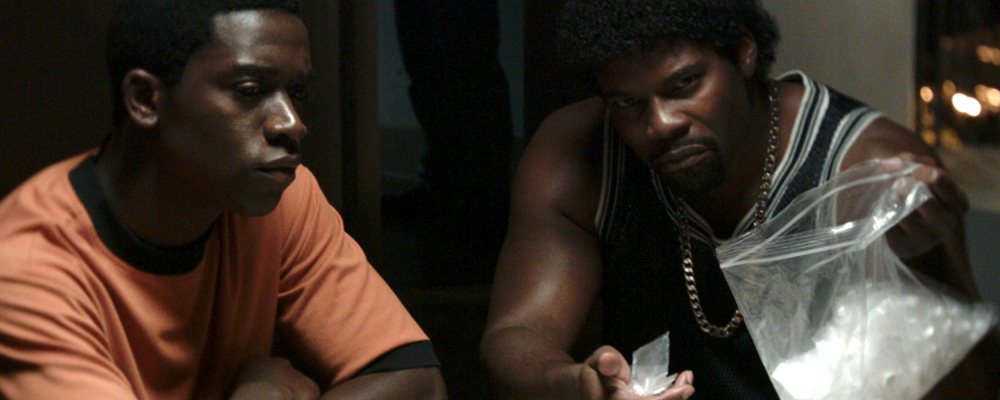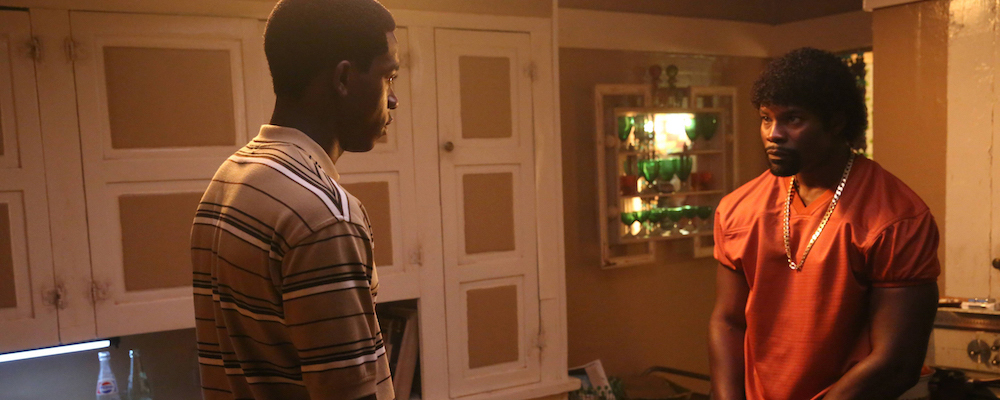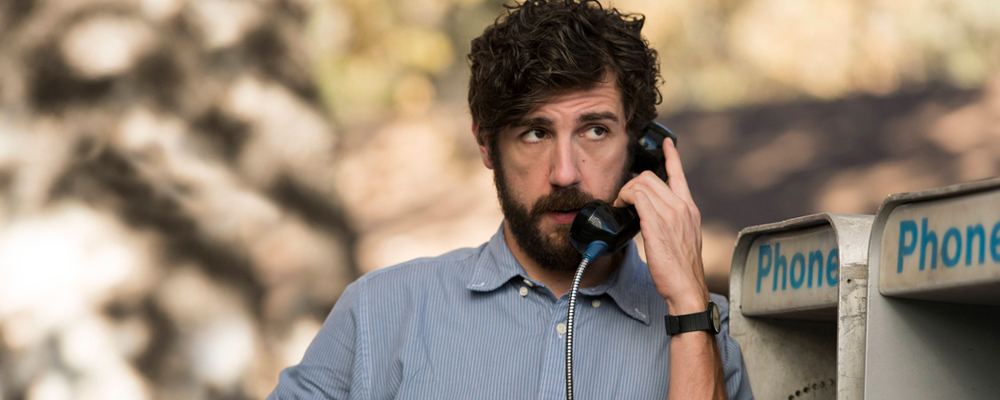After a Slow Build, ‘Snowfall’ Delivers the Goods in Season Finale
Des Delgadillo
When you contemplate the summer’s bountiful slate of TV offerings, you’d be hard-pressed to find another show as ambitious as cocaine-fueled, 80s period drama “Snowfall.” John Singleton, who famously depicted South Central Los Angeles in 1991’s “Boyz n the Hood,” turns his storytelling lens to the turbulent 1980s and the explosion of crack cocaine in L.A. Unfortunately, much of the show’s freshman season seems to lope along without a strong direction or ample conflict despite myriad characters and storylines clogging up the show’s trajectory. After a season finale that somewhat made up for the first-season’s slow pace, lofty ambitions could ultimately lead to “Snowfall’s” downfall.
When tackling something as grand in scope as the proliferation of crack cocaine in the 1980s, it’s important to approach the topic from a variety of perspectives reflective of the social turmoil that governed the South Central L.A. climate. In trying to do that, “Snowfall” creates a real problem for itself: failing to make any character’s arc all that compelling save for the main protagonist’s, and even his feels a little too familiar. A brainy black kid educated in white schools, Franklin Saint (Damson Idris) quickly goes from peddling weed to bring home cash for his mother (Michael Hyatt) to diving into the coke game. He jumps in a little too quickly, honestly, and even more quickly adopts some rather alarming kingpin traits. He essentially spends the season getting kicked around by a cliché cast of drug lords and foot soldiers as he tries to carve out his own place in the lucrative game. As the season nears its conclusion, Franklin finally seems imbued with a financial independence, even though his sprint toward adulthood is bogged down by clear childlike anxiety.
Much less captivating are the show’s subplots, which include Teddy McDonald (Carter Hudson), a CIA operative who decided to dance with the dark side, and Gustavo (Sergio Peris-Mencheta) a luchador working his way into an established cartel. Both stories manage to drag throughout the season, at times feeling like an irrelevant addition. In fact, watching Teddy battle his inner-demons while smuggling weapons through the jungle or Gustavo moving from gentle giant to eventual killer feels like a chore in between Franklin’s scenes, and although that isn’t representative of the performances the cast manage to put forward, it’s ultimately indicative of the show itself not putting enough thought into the subplots’ pacing and saving too many cards in its deck for season two. Thankfully, the season finale manages to do right by these secondary characters, with Teddy blowing away his partner and pledging even more loyalty to the darkness, adding a much-needed wrinkle to his character’s development. Meanwhile, Gustavo and Lucia (Emily Rios) work together to have the latter’s uncle murdered, finally propelling Lucia to a spot high atop her father’s empire.
If not for the series’ poor articulation, “Snowfall’s” first season could have been a powerful historical account of one of the most trying periods in Los Angeles history. Instead, it often flounders and leaves viewers without a reason to feel engaged. Even as the season concludes with Franklin finally carving out that coveted spot in the drug game (thanks to his newfound ability to cook crack and his solid network of partners), it’s unclear if as viewers we should root for him or feel bad for his mother, who looks into an empty bedroom forlornly. With the show getting the nod from FX for a second season, here’s hoping the writers can deliver on their sophomore edition, packing more of a punch and tying up the storyline, allowing the series to feel less like a long game and more like a compelling watch.
The season one finale of “Snowfall” aired Sept. 6 on FX.



